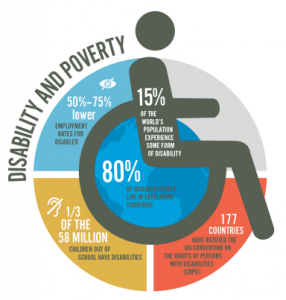Back in 2022 a plaintiffs’ firm filed a national class action in Florida against Starbucks claiming that it discriminated against those with lactose intolerance by charging extra from non-dairy milk alternatives. The case progressed in fits and starts, as most such cases do, until February 27 of this year, when the Court gave the plaintiffs seven days to explain how one of them could establish the requirements for asserting that the Court in Florida had personal jurisdiction over Starbucks. On March 6 the plaintiffs dismissed the lawsuit entirely rather than meet the Court’s demand for an explanation.
After waiting only six days the same law firm filed a new lawsuit against Starbucks, this time in California. The claims are identical; in fact, most of the new Complaint was cut and pasted from the Florida Complaint. It isn’t clear why the plaintiffs’ lawyers decided to move from the east to the west coast – after all, it was only one of the two plaintiffs that had a problem in Florida – but move they did, so the entire process is starting over.(8)
It isn’t hard to predict what will happen next. In Florida, Starbucks, represented by Minh Vu and other attorneys at Seyfarth Shaw, moved to dismiss the Complaint because it failed to state a claim under the ADA. That motion was never ruled on because of the jurisdiction issue and dismissal, but it is a safe bet that Judge Thurston (the judge in the California case) will soon be presented with an almost identical motion to dismiss. There are no meaningfully different allegations in the California lawsuit, so there isn’t much reason to do more than change the names and file the same motion again.¹
What that means for this blog is that I don’t need to wait to say what Starbucks’ position will be and explain why it is correct. Instead, I’d like to look at an argument Starbucks made in its original motion to dismiss but did not include in its motion to dismiss the plaintiff’s amended complaint, perhaps because it is the kind of fact based argument that cannot easily be raised in a motion to dismiss. I’d also like to consider a bigger question – just when does the basic unfairness of life tip over into the realm of a disability that requires statutory protection.
Under the ADA a disability is “a physical or mental impairment that substantially limits one or more major life activities. . . .” After a pair of Supreme Court interpretations finding the definition was fairly narrow² Congress amended the ADA in 2008 to explain in some detail just what this did and did not mean. The ADA amendments made it clear that “major life activities” includes “the operation of a major bodily function” including “digestive” functions. Thus, a person who is “substantially” limited in their ability to digest food has a disability. The 2008 ADA Amendments make that clear.
Both the old and new Starbucks cases rest on the claim that lactose intolerance is a disability because those who suffer from it are limited in their ability to digest lactose. The 2008 ADA Amendments made it clear that “substantially limits” no longer means “completely or severely” but leaves open the question of just what it means. The few courts to have considered the matter indicate lactose intolerance is not a substantial limitation on digestion.³ Whether they are right is a question that can be approached in a couple of ways. One is to ask what digestion is all about. Is it about being able to consume every kind of food that any human can consume? In that case any kind of food allergy or intolerance is a disability. Or is it, more sensibly, about being able to obtain the nourishment necessary for a healthy life? Since dairy products containing lactose are not the exclusive source of any nutrient a lactose intolerance does not significantly restrict one’s ability to digest.
One easy way to see that lactose intolerance does not substantially limit digestion is to look at how many people suffer from some degree of lactose intolerance. According to the National Institutes of Health about 68% of the world population suffers from some degree of “lactose malabsorption.”(4) Lactose intolerance, which is simply lactose malabsorption that causes symptoms, is less common, but the term covers a large range of symptoms, including bloating, diarrhea and gas, all of which are symptoms for many people of things like eating especially spicy foods, eating some kinds of beans, and so forth and so on. If indigestion is a disability then almost everyone is disabled. In addition, as the NIH observes, “[m]ost people with lactose intolerance can consume some amount of lactose without having symptoms.” That means, of course, that for a lactose intolerant person the occasional Starbucks latte made with whole milk may not have any effect at all.
The bottom line, looking at disability in this way, is that “lactose intolerance” as such is not a disability. Even for those whose ability to digest lactose is limited the limitation is not substantial because they can consume some lactose with no ill effect. There is some small number or people with severe lactose intolerance, but even those may only be limited in their ability to consume milk and soft cheeses.(5) And, of course, those who cannot tolerate any lactose still have the entire range of non-dairy food products available to them. In fact, lactose intolerance is especially high in parts of the world that do not, or have only recently, relied on cows’ milk as a source of food.(6) Billions of people around the world get along in life without milk products, because in some places most of the population consume little or no milk. If a very large majority of the people in South Asia are lactose intolerant it would be more than a little odd to claim it is a disability. In fact, claiming that a condition common to an identifiable ethnic group constitutes a disability is a common first step to outright racism – “they” must be inferior because “they” are all disabled.
As I said above, this was not the focus of Starbucks’ later brief in the Florida case. It focused instead on the three more technical arguments suitable for an early motion to dismiss; that is:
- If everyone pays the same price it isn’t discrimination on its face.
- DOJ regulations say that a business is never required to change the goods and services it offers and if Starbucks were forced to provide milk alternatives for free it would, in essence, be required to provide such alternatives, and
- The additional charge is not an illegal surcharge(7) because it is not disability related and not imposed only on those with disabilities.
Any of these might succeed and make the question of whether lactose intolerance is even a disability irrelevant, but the question will continue to be important as an example of a broader issue. Should every identifiable impairment be a disability? If not, how do you draw the line between “life isn’t always fair” and “we need to take action to correct a real injustice.” One answer, and the correct answer I think, is to ask whether the condition is one that has traditionally been a source of discrimination. The ADA is an anti-discrimination statute whose purpose was to combat discrimination against those with disabilities. The evil of that kind of discrimination lies in its irrationality – those with disabilities should not be treated as incapable in ways that are not related to their disability or when their impairment can be overcome with relative ease. There is no history of irrational discrimination against those with lactose intolerance; indeed there is no history of such discrimination at all. The same can be said of many other allergies and digestive problems. Behind all the definitions and statements of Congressional intent lies the problem of irrational discrimination, and that is the ultimate test of whether any condition constitutes a disability. Under that test lactose intolerance is not a disability at all.
+++++++++++++++++++++++++++++++++++++
¹ The new Motion is likely to be a little bit different because Starbucks’ lawyers now know from the Florida case what the plaintiffs’ lawyers are likely to do, so they will anticipate those arguments in their motion. And they will inevitably change things they wish they had said better the first time around. I’ve never met a lawyer that didn’t want chance to improve on their last brief.
² Sutton v. United Airlines, Inc., 527 U.S. 471 (1999); and Toyota Motor Manufacturing, Kentucky, Inc. v. Williams, 534 U.S. 184 (2002).
³ See, e.g., Griffin v. United Parcel Service, Inc., 661 F.3d 216 (5th Cir. 2011).
(4) See, Lactose Malabsorption NIH
(5) The bacteria that create cheese consume lactose, so hard cheeses do not contain significant amounts. Lactose in hard cheeses
(6) See Regional Lactose Intolerance
(7) Businesses are not permitted to charge more for goods or services to cover the supposed expense of making them usable by those with disabilities. You don’t have to offer accessible goods or services, but if you do so you can’t charge more than you charge for otherwise identical goods or services.
(8) Keeping up to date, similar lawsuits have been filed against Dunkin’ Donuts – Case No.3:23-cv-06621 in the Northern District of California and International Coffee & Tea – Case No. 2:24-cv-03132 in the Central District of California. In the Dunkin’ Donuts case a Motion to dismiss has already been filed, but has not yet been decided.




 With more than 40 new decisions in the last two weeks it hasn’t been easy getting this blog out. I’m not the only lawyer with too much to do too fast, as the following cases demonstrate.
With more than 40 new decisions in the last two weeks it hasn’t been easy getting this blog out. I’m not the only lawyer with too much to do too fast, as the following cases demonstrate. The title of today’s blog recognizes the gift bestowed by Judge Nannette Brown on everyone interested in the ADA in all its many details. Bailey v. Bd. of Commissioners of Louisiana Stadium and Exposition Dist., 2020 WL 5309962 (E.D. La. Sept. 4, 2020) is the latest of Judge Brown’s decisions concerning the dispute over stadium seating in the Superdome. Written after trial, the 64 page decision methodically dissects the law concerning concerning which standards apply to what parts of a facility after alterations, what the sight-line requirements for stadiums are under the various standards, including an exposition of the law concerning Auer deference and the effect of Kisor v. Wilke, how Title II program accessibility requirements fit into design/build standards, what kind of control is required for a person to be an “operator” of a public accommodation, when and how the “reasonable modification” requirement in Title III of the ADA applies to Title II entities, and last but not least the extent to which Title I’s “interactive process” requirement might apply to Titles II and III. The Fifth Circuit, and maybe the Supreme Court, will have the last word in this case, but if you are looking for a quick reference to almost every issue that comes up in a case involving altered facilities you can find it in this decision.¹
The title of today’s blog recognizes the gift bestowed by Judge Nannette Brown on everyone interested in the ADA in all its many details. Bailey v. Bd. of Commissioners of Louisiana Stadium and Exposition Dist., 2020 WL 5309962 (E.D. La. Sept. 4, 2020) is the latest of Judge Brown’s decisions concerning the dispute over stadium seating in the Superdome. Written after trial, the 64 page decision methodically dissects the law concerning concerning which standards apply to what parts of a facility after alterations, what the sight-line requirements for stadiums are under the various standards, including an exposition of the law concerning Auer deference and the effect of Kisor v. Wilke, how Title II program accessibility requirements fit into design/build standards, what kind of control is required for a person to be an “operator” of a public accommodation, when and how the “reasonable modification” requirement in Title III of the ADA applies to Title II entities, and last but not least the extent to which Title I’s “interactive process” requirement might apply to Titles II and III. The Fifth Circuit, and maybe the Supreme Court, will have the last word in this case, but if you are looking for a quick reference to almost every issue that comes up in a case involving altered facilities you can find it in this decision.¹ 
 One of the more frequently quoted cases dealing with the relationship between the FHA and poverty is Salute v. Stratford Greens Garden Apartments, 136 F.3d 293, 301 (2d Cir. 1998). In Stratford the Second Circuit wrote that the FHA “addresses the accommodation of handicaps, not the alleviation of economic disadvantages that may be correlated with having handicaps.” The 11th Circuit’s decision in Schaw v. Habitat for Humanity, 938 F.3d 1259 (11th Cir. Sept. 18, 2019) takes up the question of just where one draws the line between disability discrimination and economic discrimination. Along the way it also clarifies who gets to decide what accommodation is required and just what “necessary” means.
One of the more frequently quoted cases dealing with the relationship between the FHA and poverty is Salute v. Stratford Greens Garden Apartments, 136 F.3d 293, 301 (2d Cir. 1998). In Stratford the Second Circuit wrote that the FHA “addresses the accommodation of handicaps, not the alleviation of economic disadvantages that may be correlated with having handicaps.” The 11th Circuit’s decision in Schaw v. Habitat for Humanity, 938 F.3d 1259 (11th Cir. Sept. 18, 2019) takes up the question of just where one draws the line between disability discrimination and economic discrimination. Along the way it also clarifies who gets to decide what accommodation is required and just what “necessary” means.